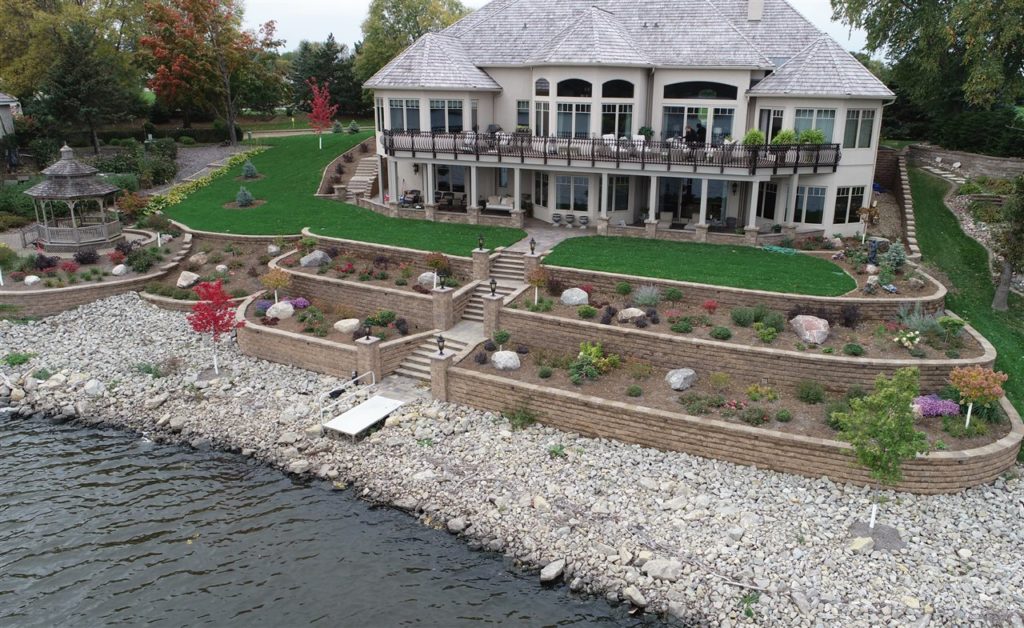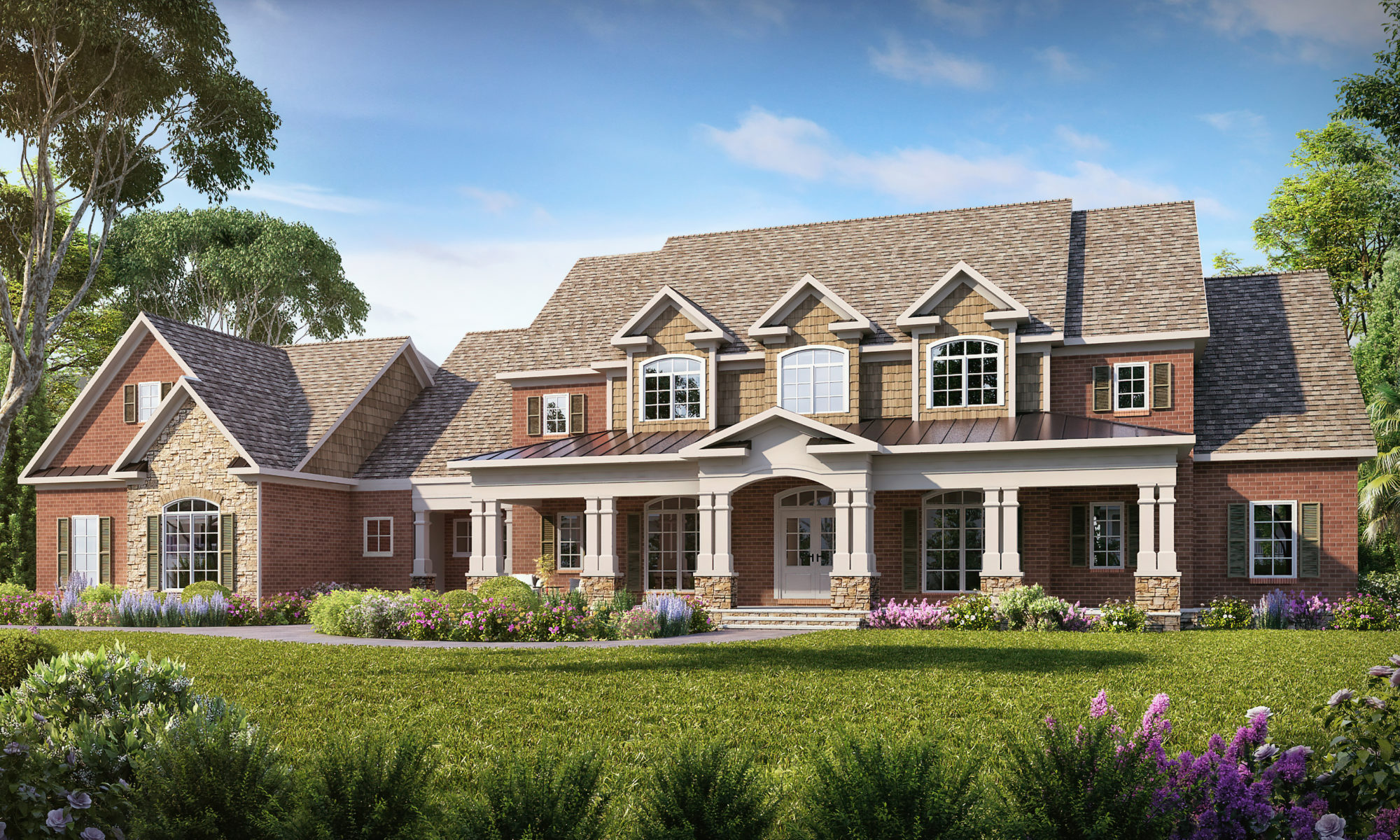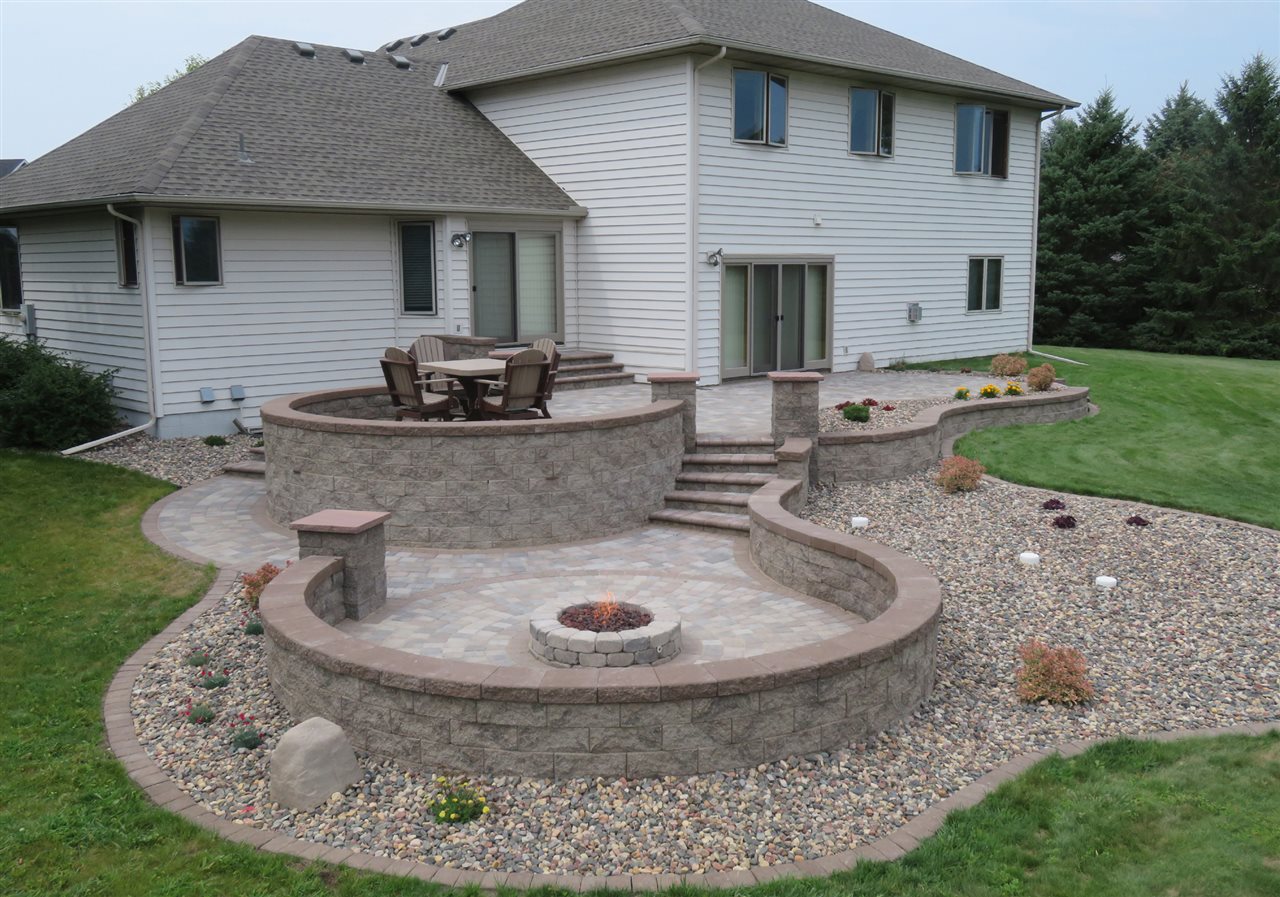(BPT) – Segmental retaining wall units are one of the most versatile landscaping tools in the homeowner’s and professional landscaper’s toolbox. Retaining wall units have evolved from just retaining soil, transitioning slopes and preventing erosion. Today’s SRWs can do all that plus serve as multipurpose building blocks for outdoor-living features, including stairs, columns, freestanding walls, tiered walls, curved walls, seating and more.
Creative designs
While these walls still accomplish their original intent, professionals and homeowners can easily create hardscape features that make outdoor-living spaces more useful and enjoyable. “Our landscape designers are very inventive in their use of segmental retaining wall units, and our customers really appreciate all the features that can be created with SRWs,” says Scott Arnold, manager of Villa Landscapes in St. Paul, Minnesota.
Products such as the Versa-Lok retaining wall system can be creatively adapted by homeowners and professionals to accommodate curves, corners, columns and tiers – without any special pieces. For example, one popular application is a retaining wall that employs a convex curve set into a small slope. Additional courses can be stacked against the lower courses of the wall to create a “couch” or seating area to surround a circular paver patio and fire pit installed at ground level.
Freestanding walls
Freestanding walls are common applications for retaining wall units. Sometimes called garden or seat walls, freestanding walls are designed to surround the perimeter of a patio and can serve as space for seating or potted plants. They also add a measure of privacy around an outdoor-living space, and when designed with inset columns, can be a support for fencing.

Tiered walls
Tiered walls are a common solution for grade changes and erosion control. The benefit of tiered walls is that they look great, and the space in between the walls can be used for a patio or for perennials, shrubs, vegetables or herbs. Tiered walls add visual depth and texture to a hardscape design and can be more aesthetically pleasing than a single wall. Stairs incorporated into a tiered wall design give safe access to a home on a slope or hill. A tiered design also creates a low-maintenance landscape, eliminating the need to mow a difficult slope.
Stepping up
Retaining wall units can serve as risers for steps. Stair treads can be finished with special precast stair tread units or bullnose (round-edged) paving stones. When installed in a contrasting shade or color, stair treads add interest to a hardscape design. Stairs created from retaining wall units can be placed within a tiered wall design, in a single wall or with wing walls on each side. Raised patios, built with a foundation created by SRWs, are often used to replace high-maintenance decks.
Can-do columns
Columns created with SRWs are a versatile, beautiful and functional feature within a hardscape design. They can support a pergola, lighting or other landscape features such as statuary, and are used to finish off the ends of a freestanding or seat wall. They can also be installed at intervals within a wall design, and columns create an attractive way to frame and support fencing.
The use of SRWs is limited only by the imagination for outdoor-living features. With a variety of colors, textures and configurations, they can do it all – from landscape walls designed with curves, columns, corners and steps to professionally engineered, soil-reinforced retaining walls.
“Versa-Lok is the one block I do 90 percent of my projects with; it can do it all,” says Stan Genadek, owner of Genadek Excavating and Landscaping in Mendota Heights, Minnesota, and the creator and host of a popular YouTube channel on landscaping, “Stanley ‘Dirt Monkey’ Genadek.”

